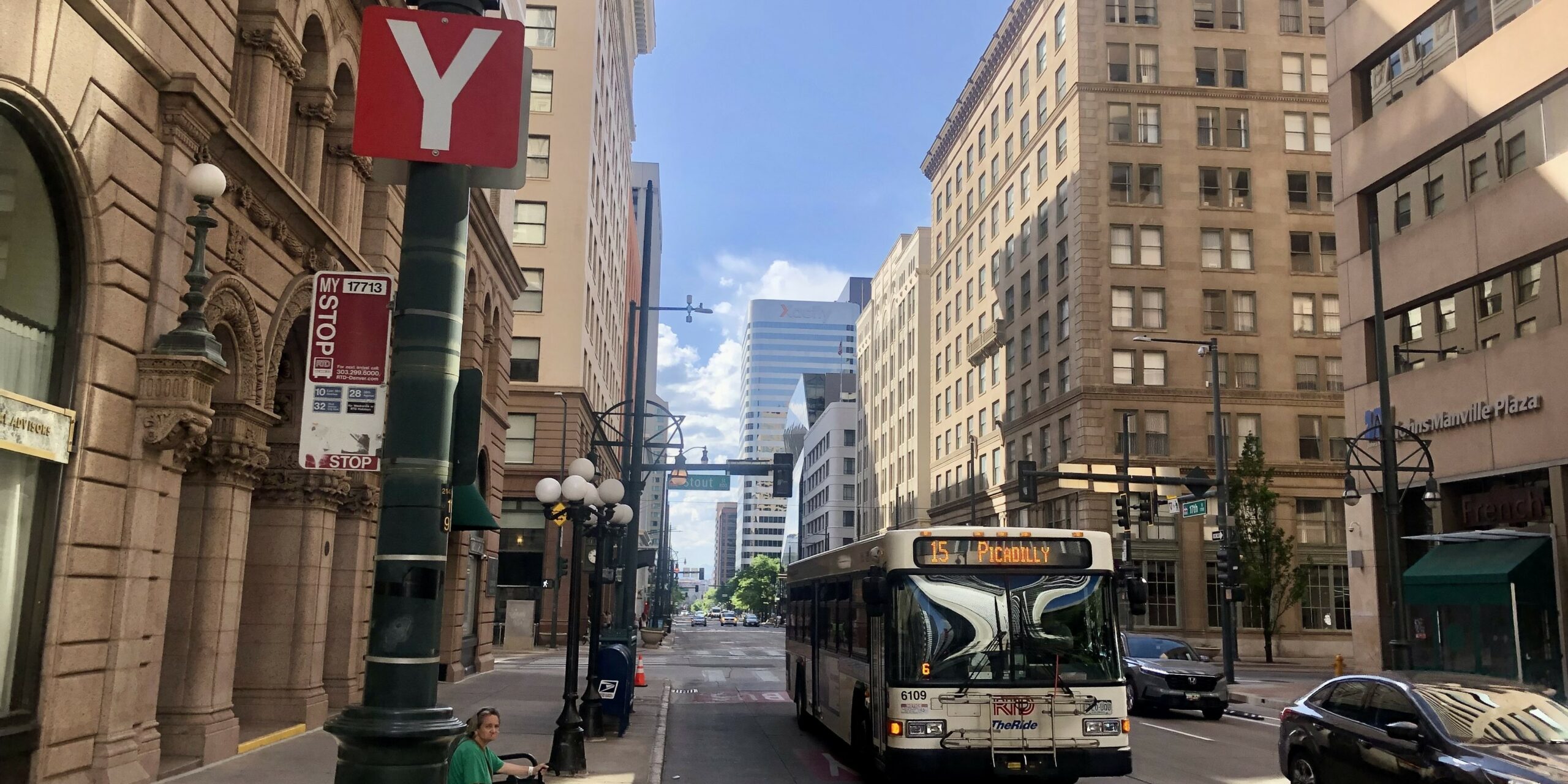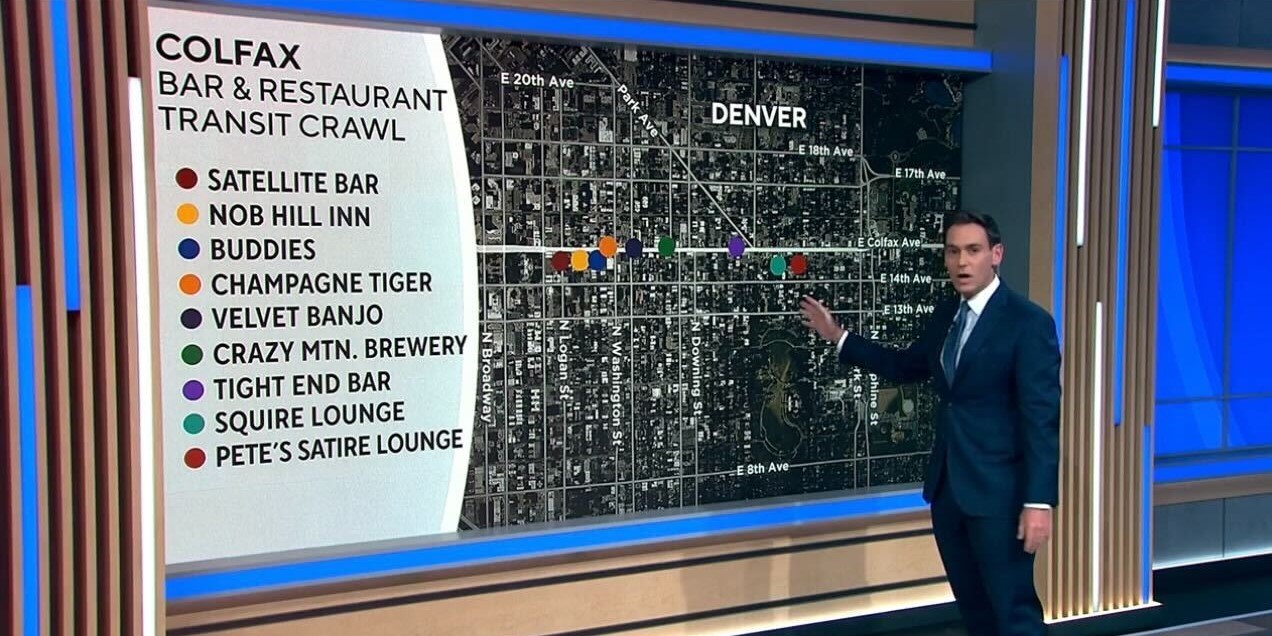GDT > Projects > East Colfax Bus Rapid Transit
The East Colfax Bus Rapid Transit Project
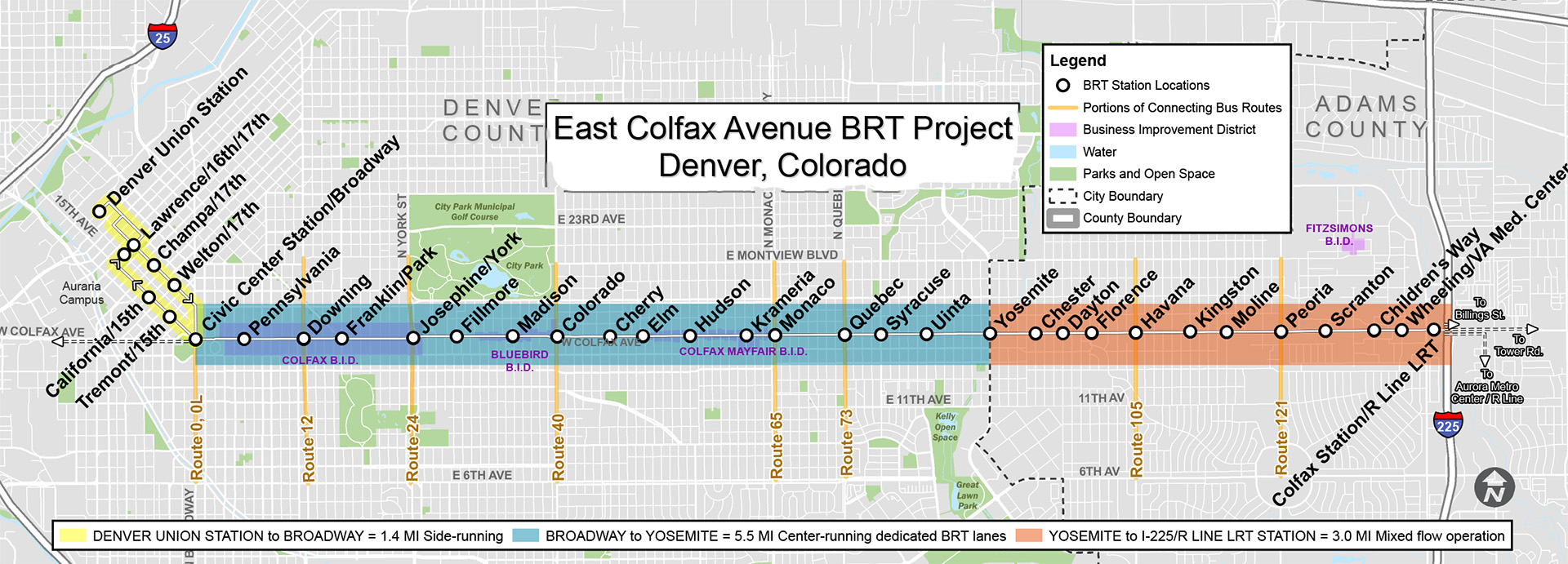
The East Colfax Bus Rapid Transit (BRT) Project will increase capacity, shorten journey times and improve the transit rider experience along East Colfax Avenue in Denver by providing center-running BRT (blue section). The BRT services will use the existing bus lanes in Downtown Denver to serve Union Station (yellow section) and existing mix-traffic lanes in Aurora (orange section). Construction has now started and will take place until 2026. Revenue service is expected to start in January 2027.
Project Timeline
- 2020–2022: Preliminary design, engineering and environmental review
- 2023–2024: Final design and FTA Small Starts application process (pursuing federal funding)
- 2024–2026: Construction, testing and commissioning
- 2027: BRT service begins
The story so far…
Aug 2nd, 2022
Community Open House
Apr 18th, 2023
Community Open House, Lynx Logo revealed.
Mar 9th, 2023
The Federal Transit Administration (FTA) announces that it is recommending $126.9M in federal funding for Colfax BRT.
Jun / Jul, 2023
Workshop 1: Broadway to Colorado Blvd. (Jun 7th, 2023)
Workshop 2: Colorado Blvd. to Yosemite St. (Jun 14th, 2023)
Workshop 3: BRT in Aurora (Jul 12th, 2023)
Nov 16th, 2023

Community Webinar, Lynx color palette announced.
Feb 28th, 2024
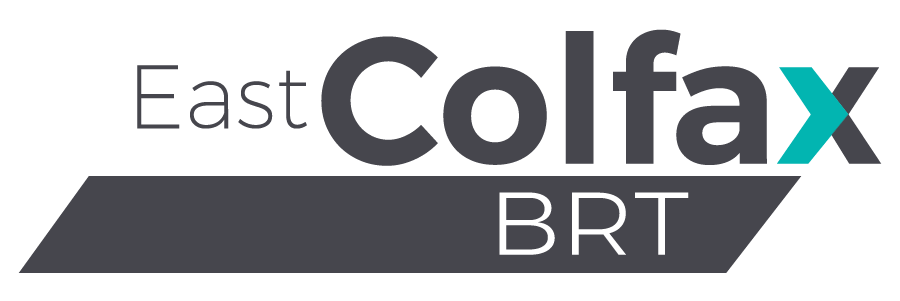
Community Open House, Colfax BRT project logo updated.
Jul 23rd, 2024
Community Webinar.
Sep 23rd, 2024
Colfax BRT construction will begin in October 2024, after Denver City Council approved an approximately $197 million construction contract with Kraemer North America LLC to build the project.
The first construction phase will stretch from the intersection of Broadway and Colfax, near Civic Center Park, for just more than a mile eastward to Williams Street.
Oct 4th, 2024
The Colfax BRT project has broken ground!
A ceremony in Civic Center Park and a party at Champagne Tiger mark the start of construction on Denver’s first true BRT project.
Nov 14th, 2024
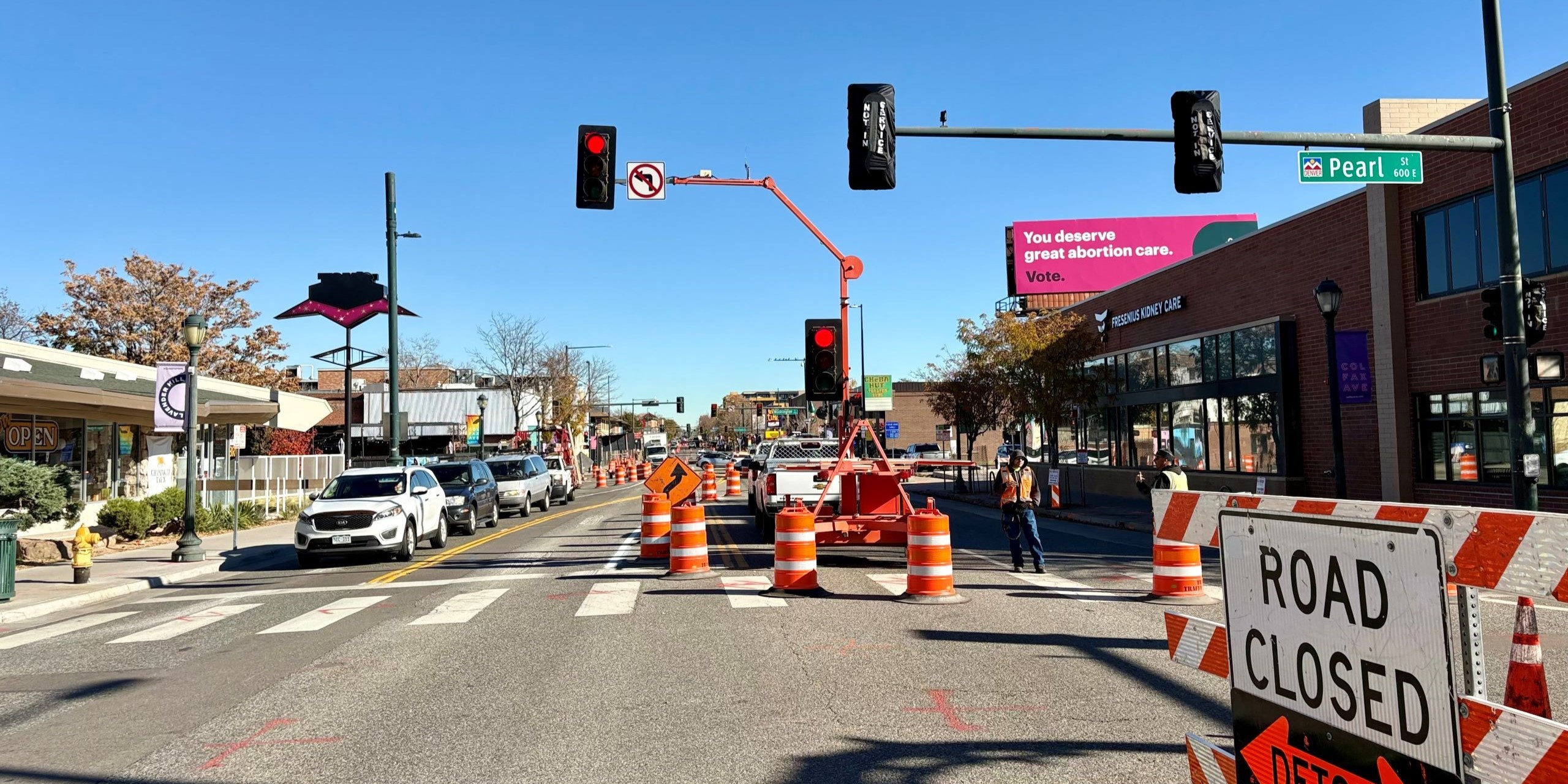
Signs that construction has started are apparent between Pennsylvania and Washington streets.
Mar 19th, 2025

Eastbound BRT platform taking shape at Colfax & Franklin.
Apr 11th, 2025
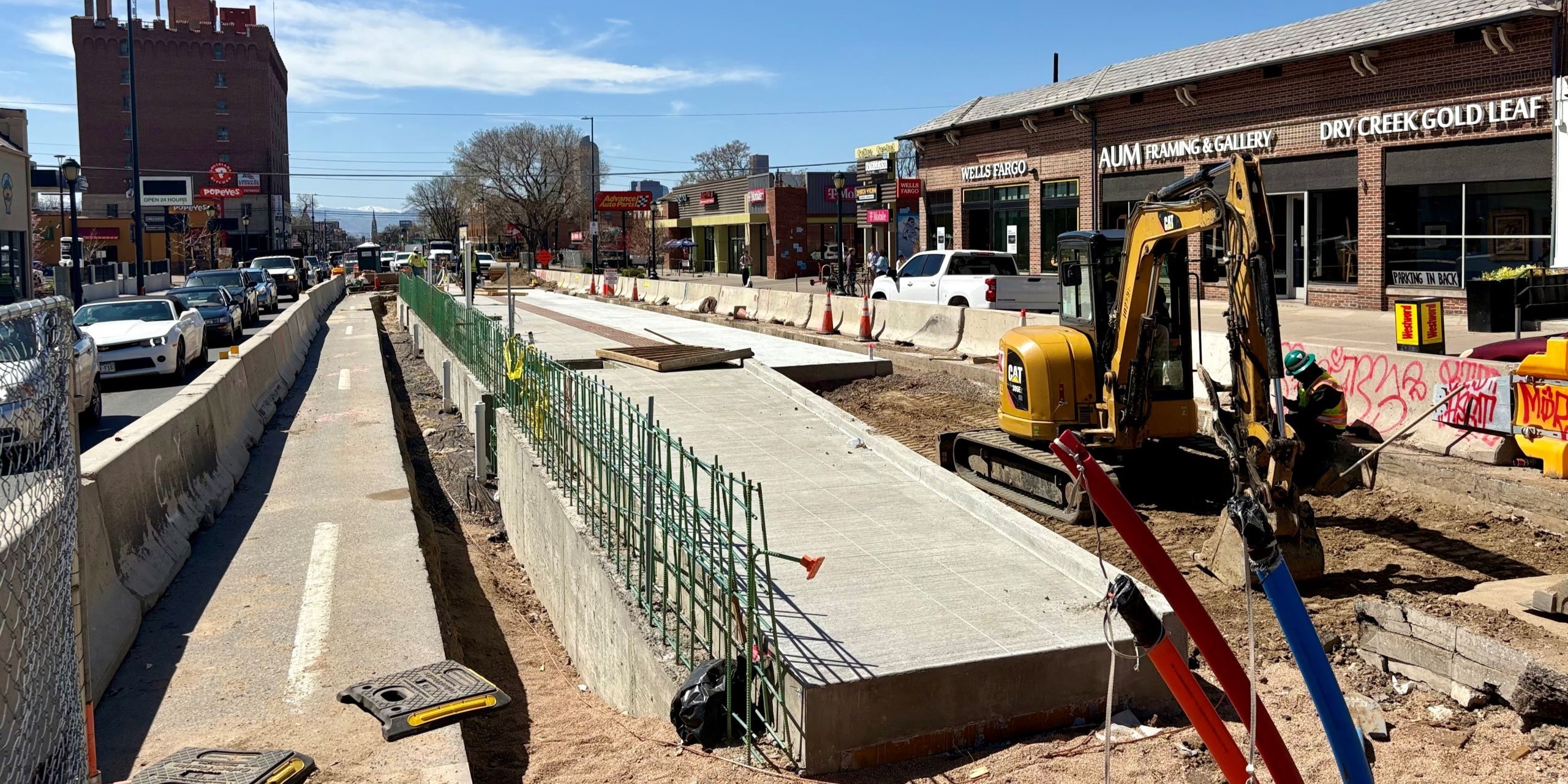
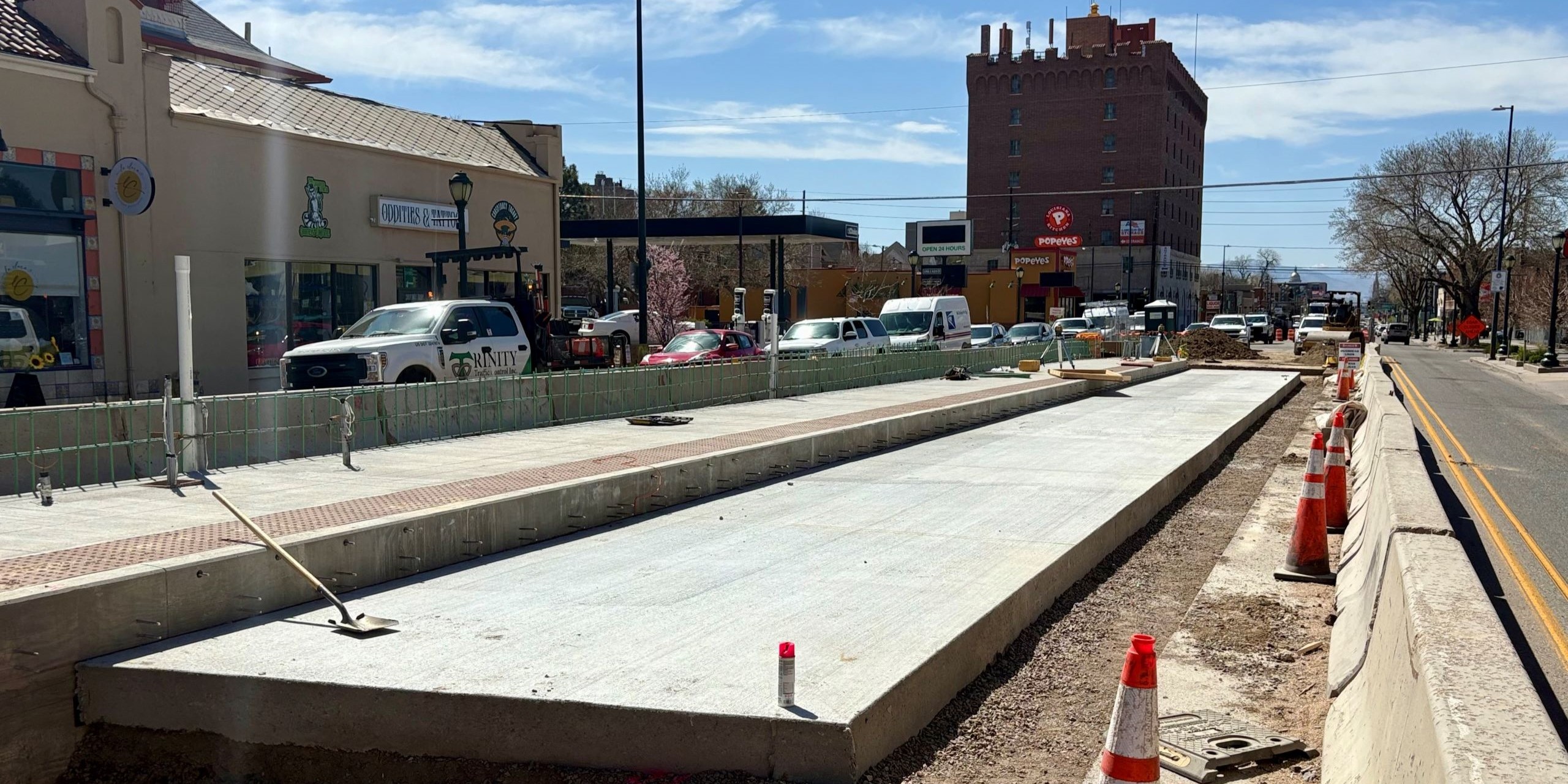
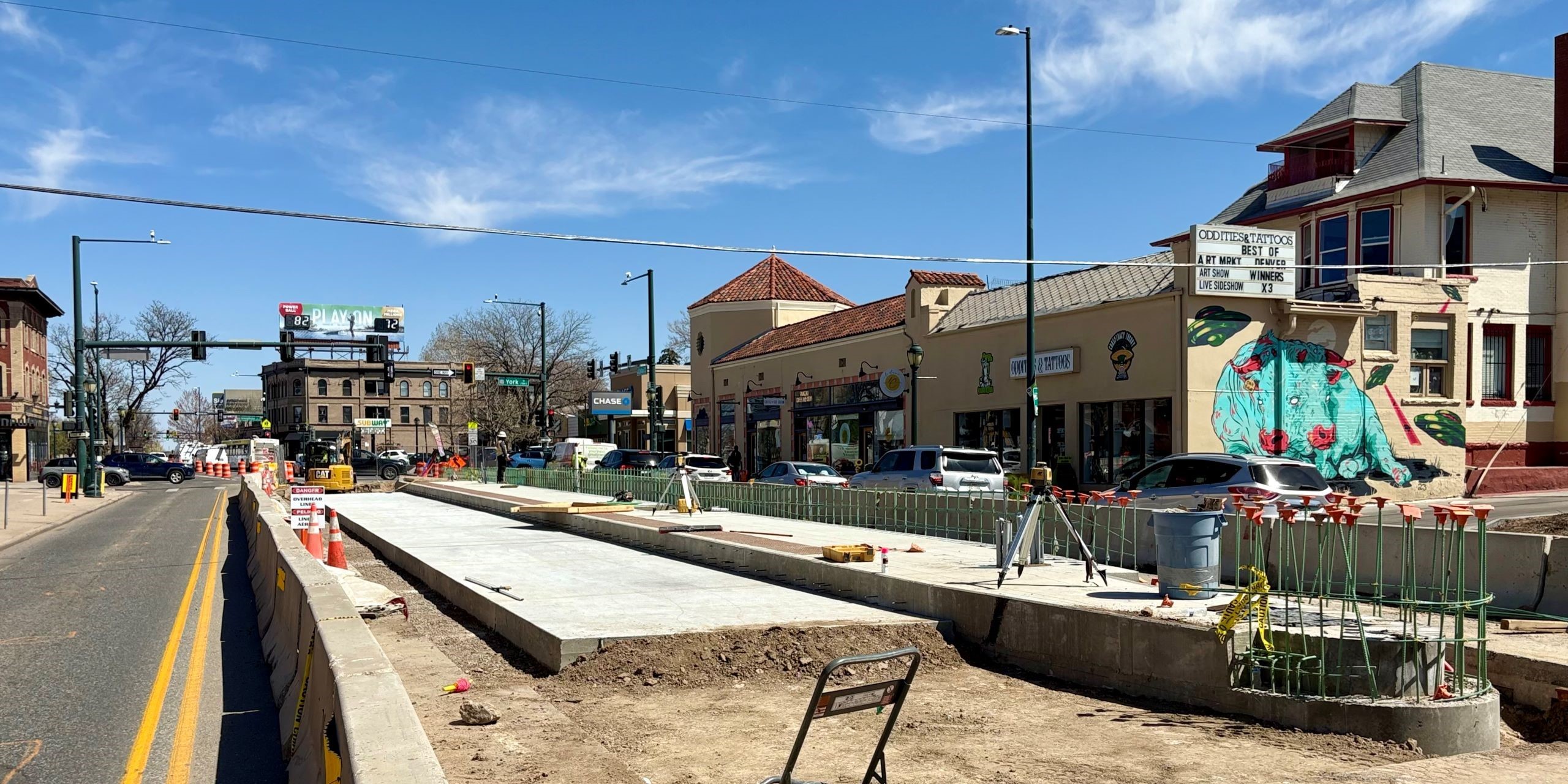
Eastbound BRT platform under construction at Colfax & York. taking shape at Colfax & Franklin.
So What is Center-running Bus Rapid Transit?
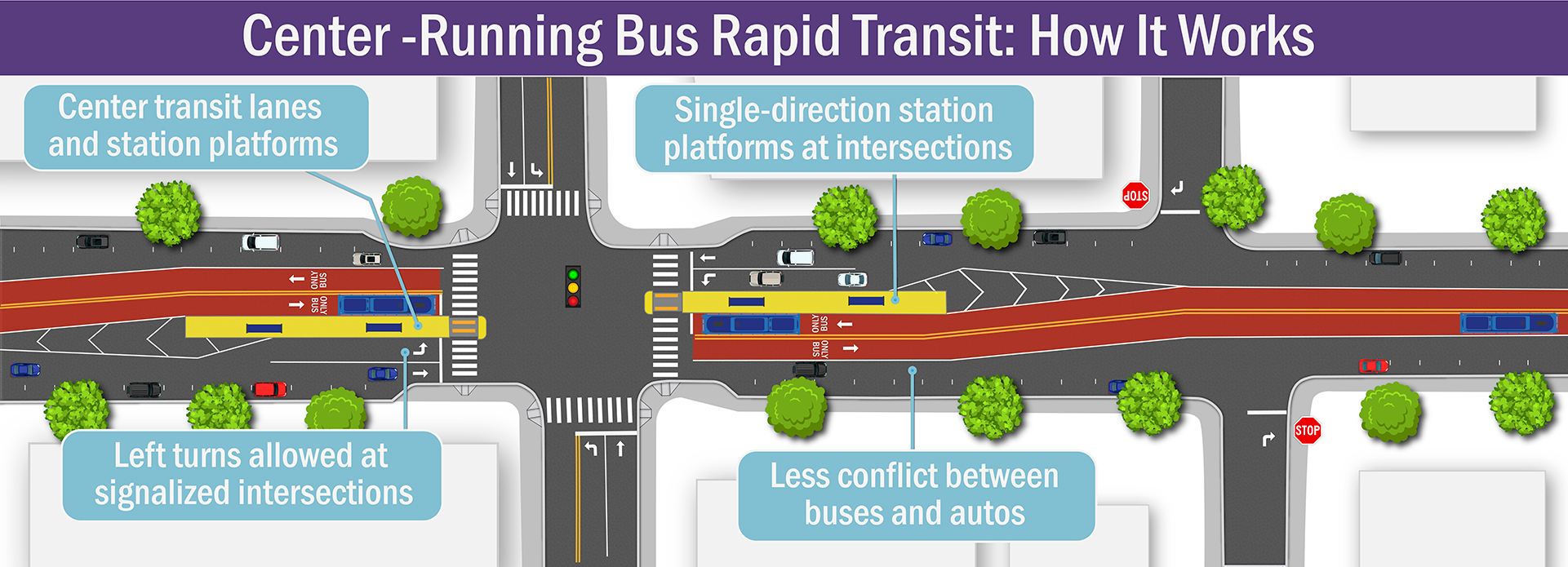
Center-running BRT places the buses in the center of the road, with a dedicated bus lane for each direction. This layout reduces conflicts with drivers making right turns and is thus claimed to be both faster for buses and safer. Due to the need to accommodate left turn lanes at intersections, the station platforms are staggered both sides of the intersection.
Station Designs
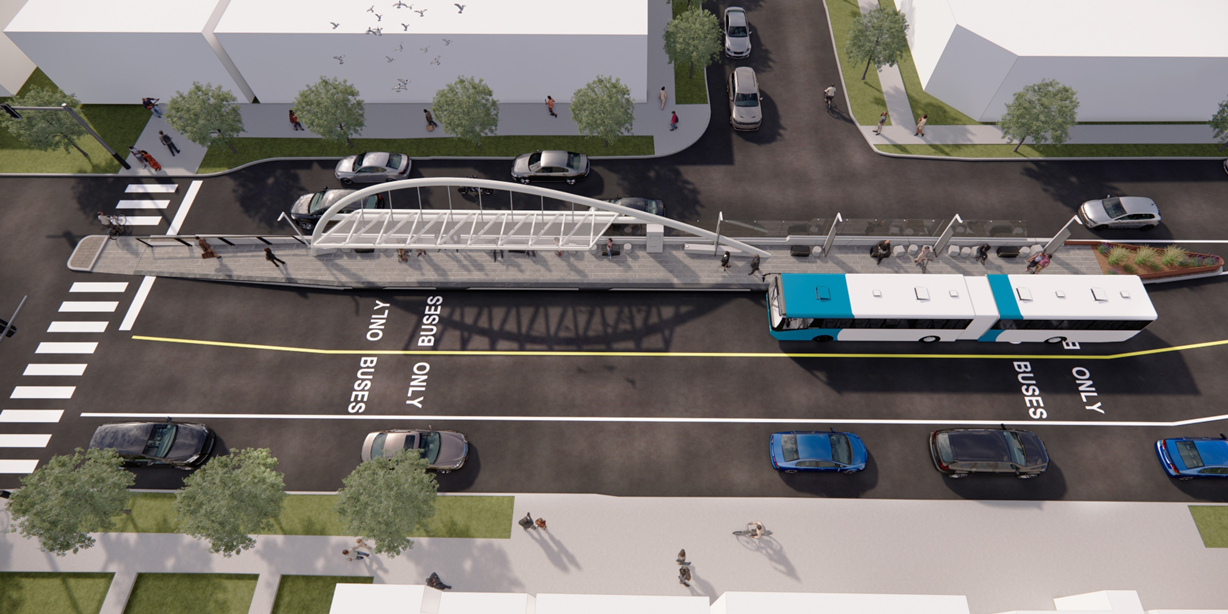
Stations will resemble those found on light rail with raised platforms (to provide level boarding), canopies, seating, ticket vending machines and electronic displays. The project has proposed a bold arch design for the stations along Colfax Avenue.
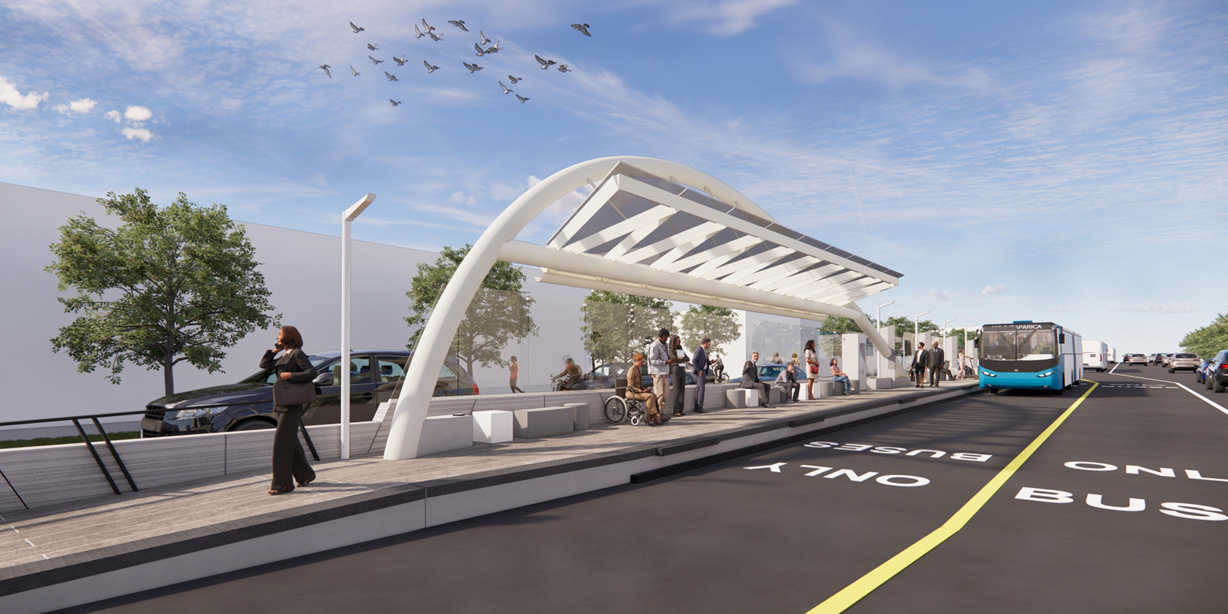
What Will The Buses Be Like?
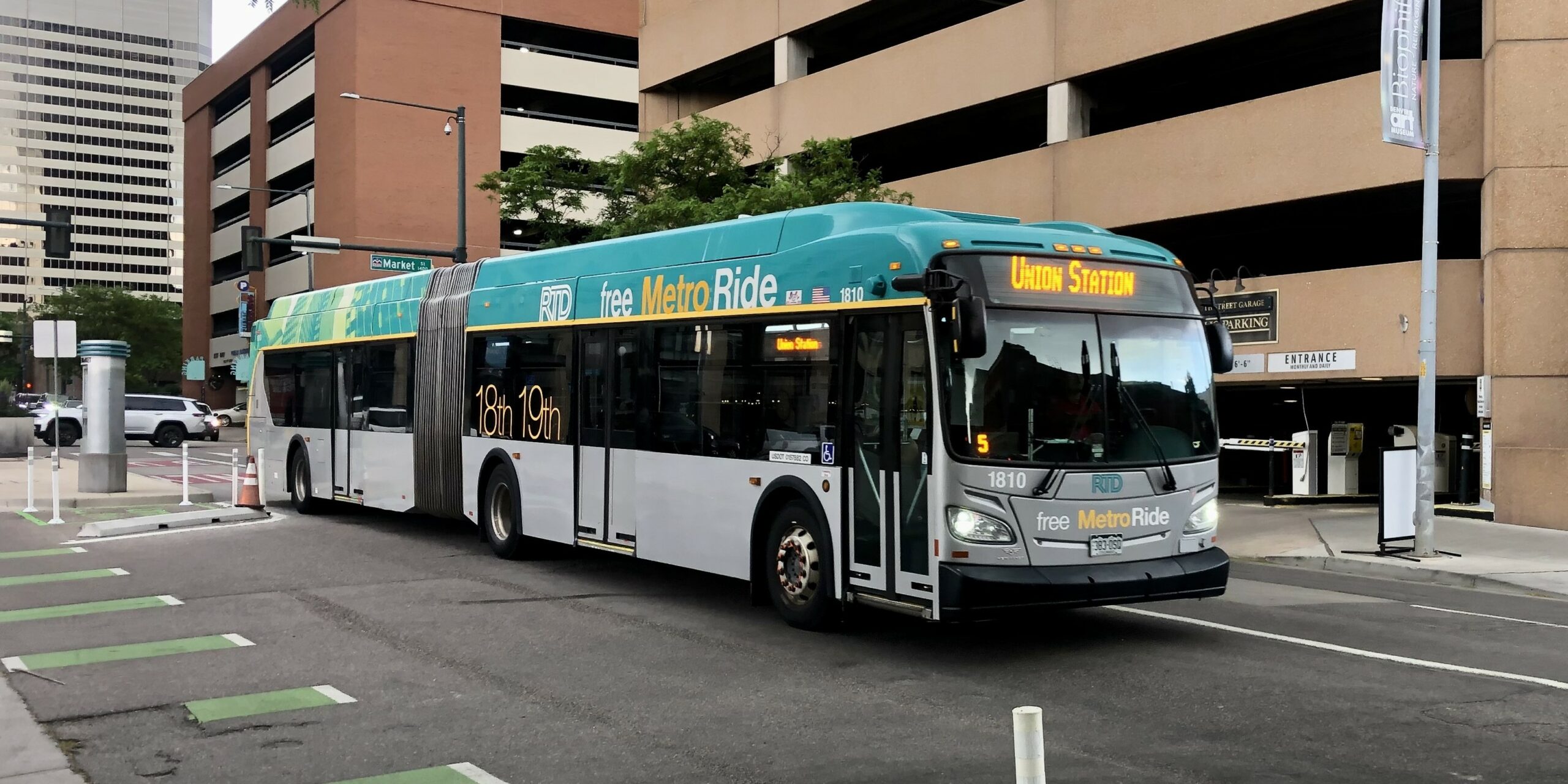
In partnership with the project, RTD is expected to order New Flyer XD60 diesel powered articulated buses for Colfax Lynx services when they start in 2027. They will have three sets of double doors for quick boarding and will be similar to the Free MetroRide vehicles that ran downtown before the Covid-19 pandemic. Because the height of BRT platforms poses a safety hazard to anyone using the front bike rack, storage for bikes will be provided inside the buses.
Transit Signal Priority
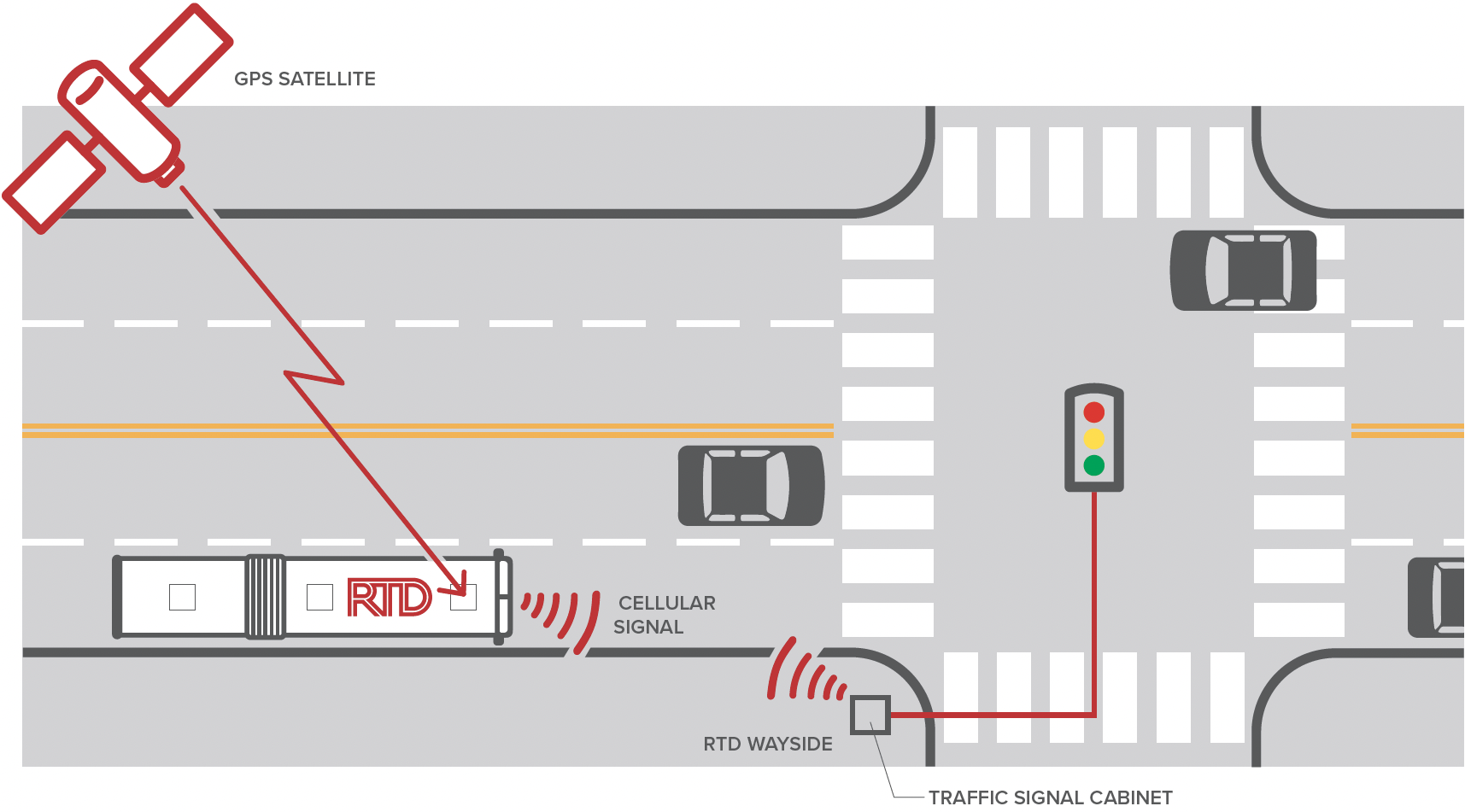
Transit signal priority (TSP) is a smart trick whereby buses can communicate their presence to traffic signals, which then turn green for the bus. Less waiting at red lights speeds up journey times.
Will BRT Reduce Journey Times?
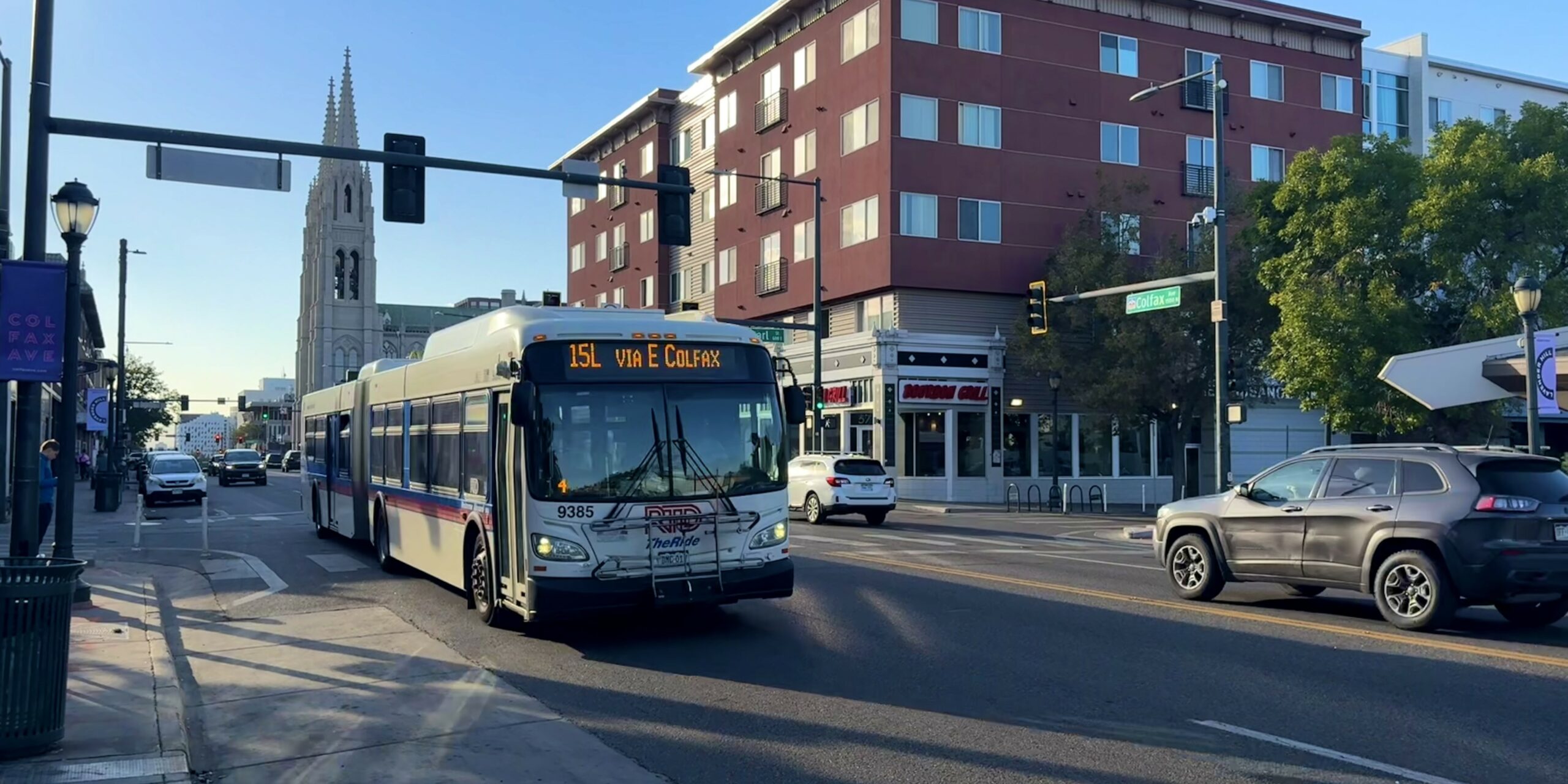
In response to the question “What is the expected BRT journey time between Colfax / Broadway and Colfax / I-225 when the service starts running in January 2027?”, the project has the following to say.
When the BRT opens, the estimated travel time for buses traveling the full length of the corridor from Broadway to I-225 is 35 minutes – a travel time savings of up to 15 minutes compared to current 15/15L travel times. People commuting the average trip length of three miles will experience an estimated five minutes of bus travel time savings.
By 2040, this travel time savings is expected to grow to 30 minutes between Broadway and I-225 and 10 minutes for people commuting the average trip length of three miles.
Below is a table which compares these times to the existing RTD bus route 15L and 15 schedules. The maximum time saving we can see is 13 mins. It is possible that BRT services may be timed quicker than 35 mins late at night.
| Broadway to I-225 | Midday Time (12pm) | Slowest Time (5pm) | Fastest Time (11pm) |
| Colfax BRT | 35 mins | 35 mins | 35 mins |
| Existing 15L Bus | 41 mins | 44 mins | 32 mins |
| Existing 15 Bus | 43 mins | 48 mins | 33 mins |
Our View…
Yes, yes, we know it’s not a subway but Greater Denver Transit supports the Colfax BRT project for the following reasons:
– The existing RTD 15 / 15L bus routes along Colfax Ave currently carry approx. 20,000 riders / day or 7m riders / year. If any transit corridor is in need of an upgrade, it’s this one.
– Bus Rapid Transit (BRT) will provide extra capacity and reduce journey times along the corridor.
– The BRT service will have its own identity (‘Lynx’), which will encourage ridership growth as dedicated marketing will increase awareness of the service.
– BRT stations will offer a big step up in facilities and journey experience for waiting riders.
– As a result of vehicle travel lanes being converted to BRT lanes, Colfax will effectively be getting a ‘road diet’ with the presence of cars much reduced. This will improve the experience for everyone on the street.
